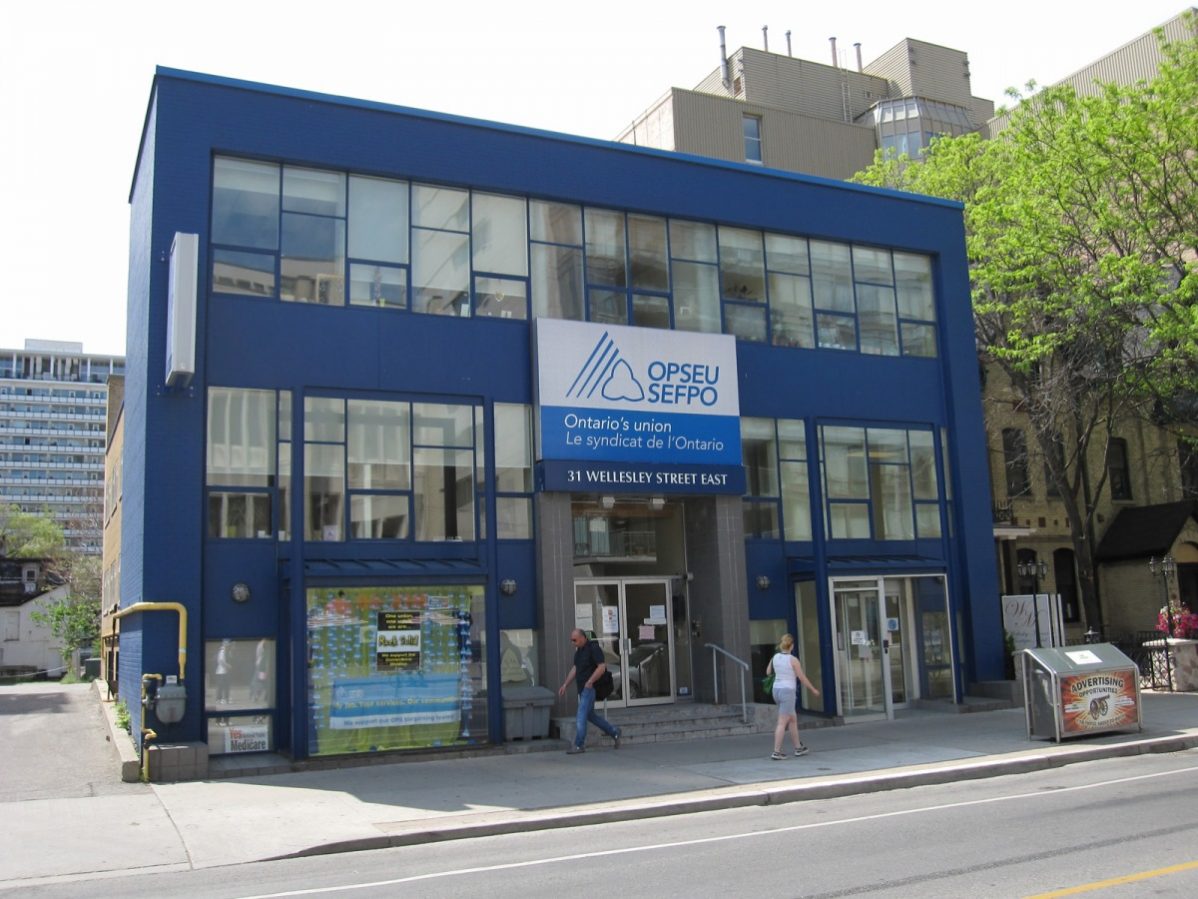After months of unproductive conversation with the College Employer Council (CEC), the faculty’s union, OPSEU-O, has confirmed that a strike mandate vote will be taking place on December 9, 10 and 11.
The vote will follow the CEC’s refusal to participate in binding interest arbitration, which would allow an arbitrator to review proposals offered by both sides and form an agreement that takes into account both sides. Instead, the CEC is insisting on Final Offer Selection (FOS), which would force the arbitrator to accept one party’s proposal in its entirety.
According to Jeff Brown, acting chief steward at OPSEU Local 556 and professor at George Brown, a strike vote should have been unnecessary. He claims the bargaining round would have been wrapped up by now had the CEC accepted interest arbitration, and that their “belligerent bargaining tactics” have left many faculty angry at the council. Following the 2017 strike, Arbitrator Kaplan was responsible for conducting binding interest arbitration, and Brown says both parties were pleased with the results.
A decision to pursue FOS would essentially force the union to “gamble” at all-or-nothing stakes.
Brown believes that in the spirit of negotiating, it would be more constructive and fairer for students to incorporate the perspectives of both sides, as the CAAT-A team proposed. But as the CEC has no direct stake in what happens at the colleges on the ground and they do not have to deal with the consequences of a FOS, they are likely more confident in putting “all of their chips in” because of it.
Brown admits that the current situation has left him and his colleagues frustrated, and has been largely distracting from what should be the focus – the usual stress that comes along with it being the end of the semester.
“I’m very tired. My colleagues are tired. Students are tired,” said Brown. “And it’s just shameful that we’re at this point.”
The strike vote, however, is based on far more than a disagreement on the best method of arbitration.
“For the strike vote, what’s being asked of people is to vote ‘yes’ to support the issues that have been at play all along,” said Brown, referring to concerns of faculty such as equity and workload. The union has been doing a lot of outreach and awareness campaigns to motivate this vote.
He speculates that a strong majority of faculty will see the importance of a ‘yes,’ which will signal to the colleges that staff are a united front on these concerns.
“Faculty have a strong resolve to stand behind these proposals that we know are legitimate, that we know are about our working conditions and that is directly related to student working conditions.”
This message could lead to a return to the table or to binding interest arbitration once again.
A ‘no’ vote, Brown says, would leave the faculty in a vulnerable position, as without a strike mandate, staff would be unable to fight back.
He emphasizes that in the wake of the vote, the impact on students is “front and center of everybody’s minds.” Brown says that even if there will be disruption to students, it will likely not match the magnitude of the five-week strike that occurred in 2017.
And if it does occur, the long-term benefits of fighting for what is at stake will be worth it, according to Brown. When professors have more time to grade work, and when more access to counsellors based in one campus are available, students benefit too.
Depending on the response from faculty after the vote, the union may consider implementing smaller, targeted labour actions, such as work-to-rule. This would put pressure on interested parties without negatively impacting students.
However, no labour action is expected until after the holidays.


